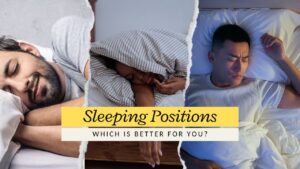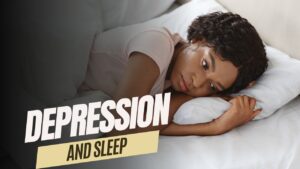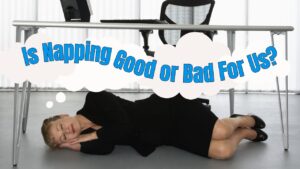In recent years, hustle culture has taken the world by storm. Social media platforms are flooded with influencers, entrepreneurs, and professionals boasting about waking up at 4 a.m. to start their grind, often accompanied by claims of thriving on just a few hours of sleep. While the narrative of working harder and sleeping less might seem motivating, it’s essential to understand the real impact this lifestyle can have on mental and physical health. In this blog post, we’ll delve into the effects of hustle culture on sleep, explore scientific studies, and offer practical solutions to help you balance ambition with well-being.
The Rise of Hustle Culture and Sleep Deprivation
Hustle culture glorifies constant work, productivity, and the idea that sleeping less equates to success. Phrases like “sleep is for the weak” or “I’ll sleep when I’m dead” have become mantras for many who aspire to achieve their goals. While dedication and hard work are admirable, the dismissal of sleep as unnecessary can have serious repercussions.
The Negative Effects of Sleep Deprivation on Health
- Impaired Cognitive Function:
Sleep is critical for cognitive processes such as memory consolidation, problem-solving, and decision-making. A study published in Nature Reviews Neuroscience found that sleep-deprived individuals exhibit impaired attention, decreased alertness, and reduced problem-solving abilities (Walker, 2017). Chronic sleep deprivation can lead to cognitive decline, negatively affecting both professional and personal life. - Mental Health Issues:
Lack of sleep is closely linked to mood disorders such as anxiety and depression. Research in the Journal of Affective Disorders highlights that individuals who consistently get less than six hours of sleep are at a significantly higher risk of developing depression and anxiety symptoms (Baglioni et al., 2016). The relentless pursuit of success at the expense of sleep can lead to burnout, stress, and emotional exhaustion. - Physical Health Consequences:
Sleep is essential for the body’s repair and recovery processes. Chronic sleep deprivation is associated with an increased risk of various health conditions, including cardiovascular disease, obesity, and diabetes. A study in the Journal of the American Heart Association found that people who sleep less than six hours per night have a higher risk of hypertension and coronary artery disease (Liu et al., 2019). - Decreased Immune Function:
Sleep plays a vital role in supporting the immune system. A study published in Sleep showed that individuals who sleep less than seven hours per night are three times more likely to develop a cold compared to those who sleep eight hours or more (Cohen et al., 2009). Chronic sleep deprivation weakens the immune response, making the body more susceptible to infections.
The Social Influence of Hustle Culture
Hustle culture not only impacts individuals but also perpetuates unrealistic societal expectations. Social media platforms often portray a glamorized version of the hustle lifestyle, leading others to believe that sleep deprivation is a prerequisite for success. This influence can create a toxic cycle where people feel pressured to sacrifice their well-being for the sake of appearing productive and driven.
The Positive Aspects of Hustle Culture
While the negative effects of extreme hustle culture are clear, it’s important to recognize that ambition and hard work can also be positive. When balanced correctly, a strong work ethic can lead to personal and professional growth, increased job satisfaction, and a sense of achievement. The key is finding a balance that allows for ambition without compromising health.
Balancing Hustle and Health: Practical Solutions
- Prioritize Sleep:
Understand that sleep is non-negotiable for health and productivity. Aim for 7-9 hours of quality sleep each night to ensure your body and mind are well-rested. Establish a consistent sleep schedule by going to bed and waking up at the same time every day, even on weekends. - Set Realistic Goals:
Ambition is essential, but setting realistic and achievable goals is crucial. Break down larger tasks into manageable steps, and avoid overcommitting. This approach will help reduce stress and prevent burnout. - Practice Time Management:
Effective time management can help you achieve more during your waking hours without sacrificing sleep. Prioritize tasks, eliminate distractions, and consider techniques like the Pomodoro method to enhance focus and productivity. - Incorporate Self-Care:
Make self-care a part of your daily routine. Engage in activities that promote relaxation and stress relief, such as meditation, exercise, or spending time with loved ones. Taking breaks and unplugging from work can enhance creativity and improve overall well-being. - Limit Exposure to Toxic Influences:
Be mindful of the content you consume on social media. Follow accounts that promote a healthy work-life balance and avoid those that glorify sleep deprivation. Surround yourself with people who value well-being and support your goals.
Conclusion
While hustle culture may glorify the idea of sleeping less to achieve more, the reality is that sleep is essential for maintaining mental and physical health. Chronic sleep deprivation can lead to cognitive impairments, mood disorders, and serious health conditions. By prioritizing sleep, setting realistic goals, and practicing self-care, you can balance ambition with well-being and achieve success without sacrificing your health. Remember, real success comes from sustainable habits that promote both productivity and health.
References
- Baglioni, C., Battagliese, G., Feige, B., Spiegelhalder, K., Nissen, C., Voderholzer, U., … & Riemann, D. (2016). Insomnia as a predictor of depression: A meta-analytic evaluation of longitudinal epidemiological studies. Journal of Affective Disorders, 135(1-3), 10-19.
- Cohen, S., Doyle, W. J., Alper, C. M., Janicki-Deverts, D., & Turner, R. B. (2009). Sleep habits and susceptibility to the common cold. Archives of Internal Medicine, 169(1), 62-67.
- Liu, Y., Wheaton, A. G., Chapman, D. P., Cunningham, T. J., Lu, H., & Croft, J. B. (2019). Prevalence of healthy sleep duration among adults—United States, 2014. Morbidity and Mortality Weekly Report, 65(6), 137-141.
- Walker, M. P. (2017). Cognitive consequences of sleep and sleep loss. Nature Reviews Neuroscience, 10(10), 670-680.
By embracing a balanced approach to work and sleep, you can unlock your full potential and achieve your goals while maintaining optimal health and well-being.
*Affiliate Disclaimer*: Some of the links in this article may be affiliate links, which means I may earn a small commission if you click through and make a purchase, at no additional cost to you. As an affiliate marketer, I earn from qualifying purchases. This helps me provide free content to my readers. Thank you for your support!
*Medical Disclaimer*: The information provided in this article is for educational and informational purposes only and is not intended as medical advice. We are not healthcare professionals, and the content should not be used as a substitute for professional medical consultation, diagnosis, or treatment. Always seek the advice of your physician or another qualified healthcare provider with any questions you may have regarding a medical condition or before starting any new supplements, medications, or health-related changes.





